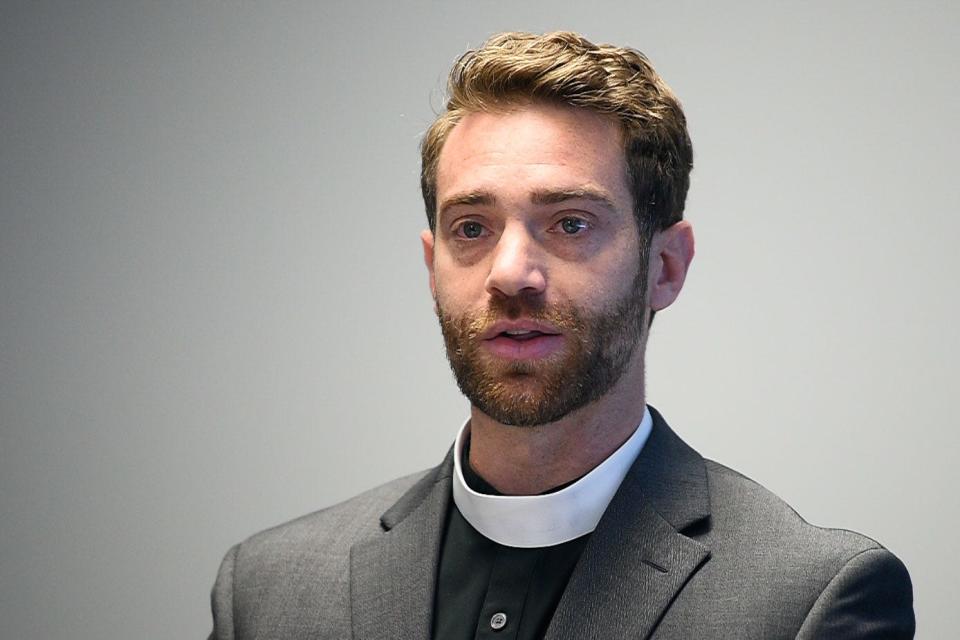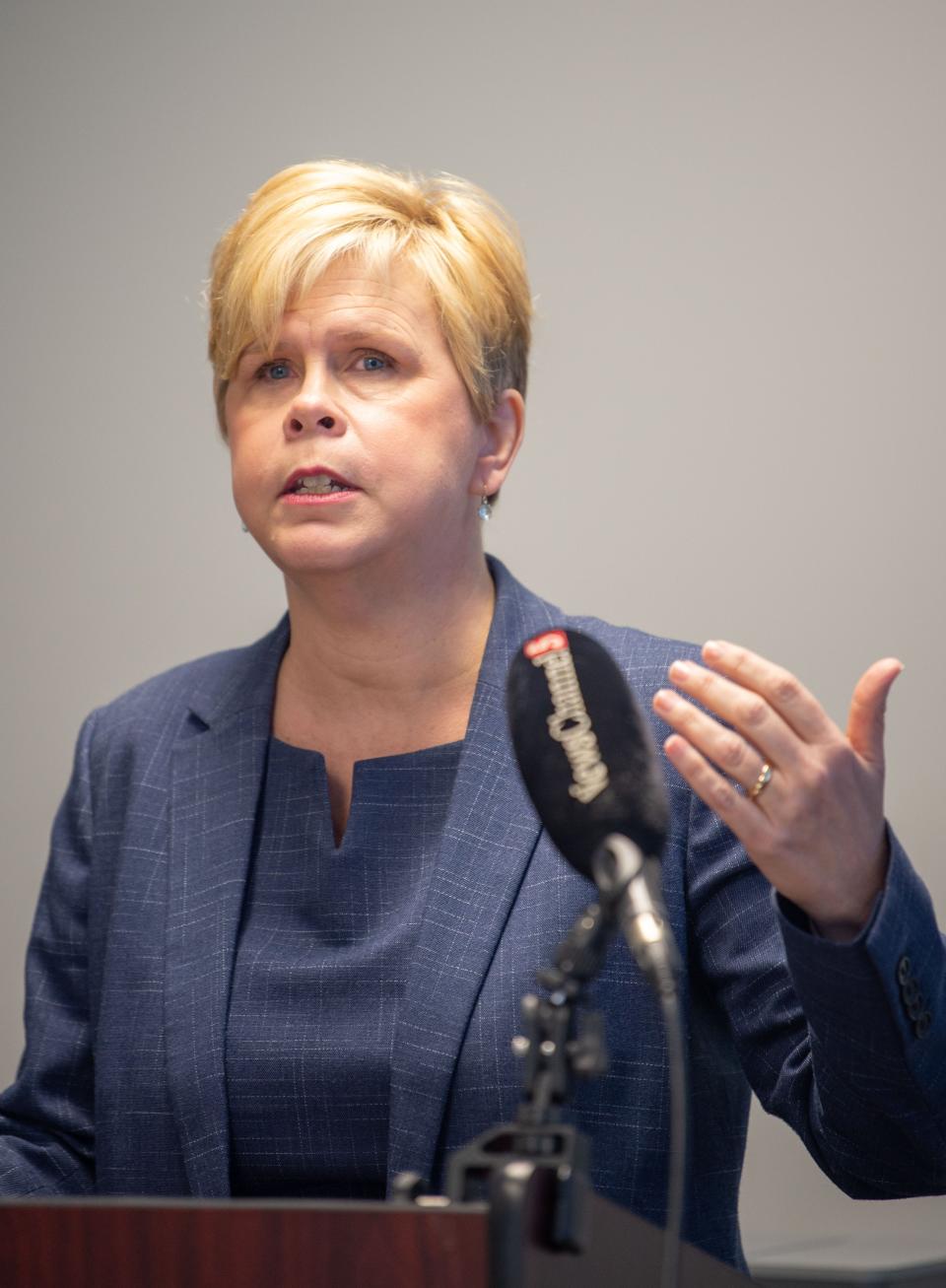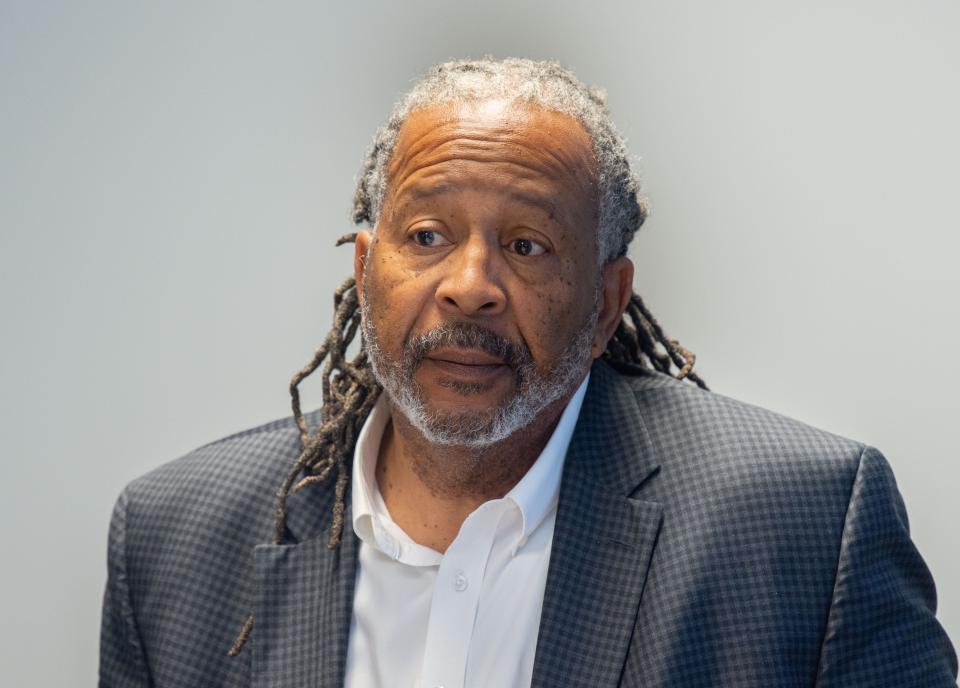Attorneys seek halt to executions as Oscar Franklin Smith 'oversight' investigated
Federal public defenders on Thursday called on Tennessee Gov. Bill Lee to issue a moratorium on executions a week after a "technical oversight" delayed the killing of death row inmate Oscar Franklin Smith.
Few details have been released on the oversight that led to temporary reprieve just more than an hour before Smith was set to die by lethal injection. Lee's office told reporters this week more details may be released soon.
Kelley Henry, chief of the federal public defender's habeas unit, has led the call for an immediate independent review of the problem.
"Such action would not only be courageous but would also be the right thing to do for the residents of this state who deserve to know that the most solemn act of government is approached with the utmost care and professionalism," she wrote in a letter to Lee Thursday.
Opinion: How Tennessee Gov. Bill Lee's secrecy adds new worry about the death penalty | Column
Also signing the letter was fellow federal public defender Amy Harwell, Smith's lead attorney. Lawyers with the office represent more than half the men on Tennessee's death row, including two others set to be executed this year, Byron Black and Donald Middlebrooks.
The call was announced at a news conference Thursday at the federal public defender's office in Nashville. The letter itself was sent to Lee just before 11 a.m., the office confirmed.
Attorneys on Thursday were joined by faith leaders, including Smith's spiritual advisor, and a medical expert.
Delayed execution
Smith, 72, was convicted of three counts of first-degree murder in the Oct. 1, 1989, killings of his estranged wife, Judith Robirds Smith, 35, and her sons from another marriage, Chad Burnett, 16, and Jason Burnett, 13.
Inside the case: 'The boys were brutalized': The triple murder case that sent Oscar Franklin Smith to death row
The state was scheduled to execute him by lethal injection at 7 p.m. on April 21. At 5:42 p.m., Lee announced a temporary reprieve of the execution due to an "oversight" in the lethal injection protocol process.
Lee had previously declined to intervene in the capital case.
He was first scheduled to be executed in June 2020 but had two execution dates rescheduled since the start of the coronavirus pandemic. The Tennessee Supreme Court could set a new date for June 8 at the earliest after the reprieve expires, but there is no indication they intend to move that quickly.
"When Mr. Smith was sentenced to death, he was sentenced to death. He wasn't sentenced to this limbo of unknowing," Harwell said Thursday. "That kind of uncertainty, that level of secrecy of where things go from here and what already happened is not something that's intrinsic to this process."

At the news conference Thursday, Smith's spiritual adviser, the Rev. Matthew Lewis, Christ Church Cathedral, said the man was in the middle of taking what he believed would be his last communion when he learned of the reprieve.
"He has already begun the process of leave-taking to make it easier on those around him," he read from his notes from the day.
"There was for a brief moment the possibility of communion between executed and execution or in the remembrance of a god that was executed," Lewis said.
Smith is one of dozens of death row inmates who joined a lawsuit in 2018 arguing lethal injection amounts to state-sanctioned torture by creating the sensations of drowning and burning alive.
Lee's decision last week is the first time he's intervened in a capital case, except for COVID-19-related delays.
Harold Wayne Nichols is scheduled to be executed on June 9.
Henry said Thursday she believes the compounded drugs used in the previous two lethal injection executions, those of Billy Ray Irick and Donnie Johnson, likely had issues. She has not been able to confirm through Tennessee Department of Correction records that they were tested against adequate medical standards.
James Ruble, a professor at the University of Utah College of Pharmacy, joined the news conference by video on his own behalf to say creating compounded drugs is not as rigorous a procedure as commercially-available ones.
"Having these things not being transparent adds to complexity and adds to the uncertainty of their fitness for use," he said.
Legal fight ongoing
Attorneys last week filed a request for evidence in the case of another Tennessee death row inmate, Middlebrooks, as part of an ongoing lawsuit arguing the state's current protocol is unconstitutional.
Tennessee death row inmates have long taken the position the current lethal injection protocol amounts to state-sanctioned torture. The state is one of the few still using the three-drug cocktail after botched executions were reported across the country.
According to the state's lethal injection protocol document, an unnamed physician writes a prescription for the drugs after TDOC receives an execution date order. The drugs are stored in an armory area at Riverbend Maximum Security Institution until an execution day.
Opinion: Tennessee should reconsider death penalty after execution delay | Plazas

The state's protocol requires TDOC to keep a large enough drug supply to carry out three executions.
"Not every problem must be solved in court," Henry and Harwell wrote in Thursday's letter, asking Lee to at least stay executions until the courts finish their review of the case.

The Rev. Davie Tucker, Jr., pastor of Beech Creek Missionary Baptist Church, spoke Thursday as what he said was the "conscience of the community."
"After hearing everything that has been said, the case has been made, Gov. Lee, that it seems to be the proper response to grant what these people ask," he said. "How do you morally and ethically sanction the killing the of another human?
"These are troubling times. The guilt or innocence of Mr. Smith is not the debate here. Gov. Lee, you know that everything that’s legal ain’t right. God bless you."
Lee's office did not immediately respond to a request for comment.
Reach reporter Mariah Timms at mtimms@tennessean.com or 615-259-8344 and on Twitter @MariahTimms.
This article originally appeared on Nashville Tennessean: Oscar Franklin Smith execution: Tennessee Gov asked to halt

